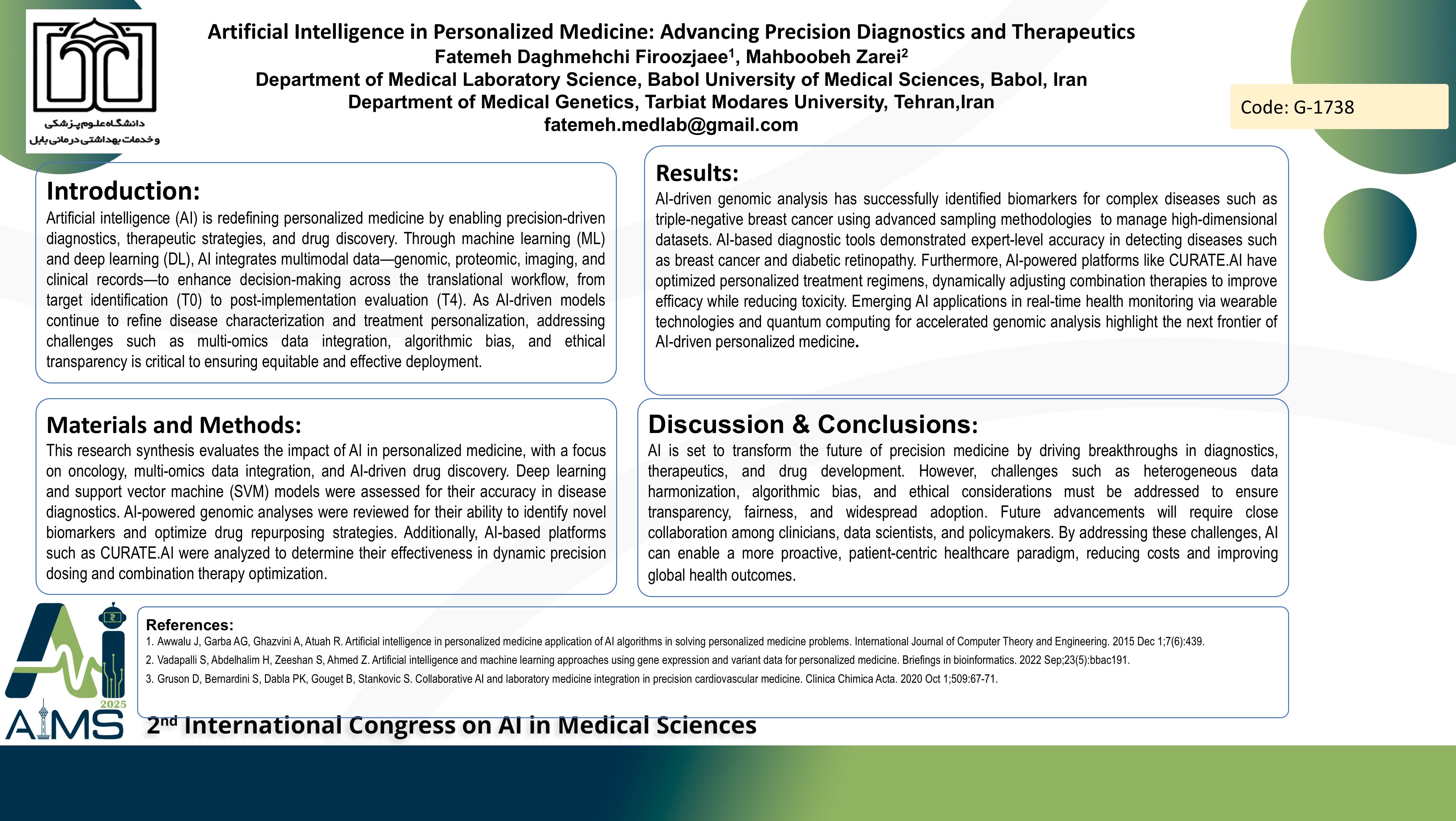هوش مصنوعی در پزشکی شخصی محور: تشخیص های دقیق پیشرفته و درمان
کد: G-1738
نویسندگان: Fatemeh Daghmehchi Firoozjaee * ℗, Mahboobeh Zarei
زمان بندی: زمان بندی نشده!
برچسب: تشخیص و درمان سرطان
دانلود: دانلود پوستر
خلاصه مقاله:
خلاصه مقاله
Background: Artificial intelligence (AI) is redefining personalized medicine by enabling precision-driven diagnostics, therapeutic strategies, and drug discovery. Through machine learning (ML) and deep learning (DL), AI integrates multimodal data—genomic, proteomic, imaging, and clinical records—to enhance decision-making across the translational workflow, from target identification (T0) to post-implementation evaluation (T4). As AI-driven models continue to refine disease characterization and treatment personalization, addressing challenges such as multi-omics data integration, algorithmic bias, and ethical transparency is critical to ensuring equitable and effective deployment. Methods: This research synthesis evaluates the impact of AI in personalized medicine, with a focus on oncology, multi-omics data integration, and AI-driven drug discovery. Deep learning and support vector machine (SVM) models were assessed for their accuracy in disease diagnostics. AI-powered genomic analyses were reviewed for their ability to identify novel biomarkers and optimize drug repurposing strategies. Additionally, AI-based platforms such as CURATE.AI were analyzed to determine their effectiveness in dynamic precision dosing and combination therapy optimization. Results: AI-driven genomic analysis has successfully identified biomarkers for complex diseases such as triple-negative breast cancer using advanced sampling methodologies to manage high-dimensional datasets. AI-based diagnostic tools demonstrated expert-level accuracy in detecting diseases such as breast cancer and diabetic retinopathy. Furthermore, AI-powered platforms like CURATE.AI have optimized personalized treatment regimens, dynamically adjusting combination therapies to improve efficacy while reducing toxicity. Emerging AI applications in real-time health monitoring via wearable technologies and quantum computing for accelerated genomic analysis highlight the next frontier of AI-driven personalized medicine. Conclusion: AI is set to transform the future of precision medicine by driving breakthroughs in diagnostics, therapeutics, and drug development. However, challenges such as heterogeneous data harmonization, algorithmic bias, and ethical considerations must be addressed to ensure transparency, fairness, and widespread adoption. Future advancements will require close collaboration among clinicians, data scientists, and policymakers. By addressing these challenges, AI can enable a more proactive, patient-centric healthcare paradigm, reducing costs and improving global health outcomes.
کلمات کلیدی
Artificial Intelligence, Personalized Medicine, Genomic Analysis
